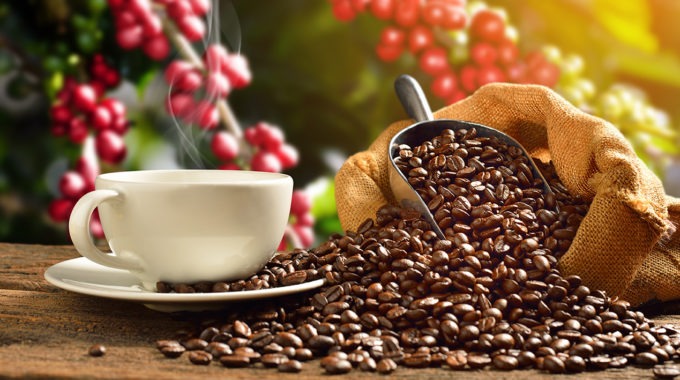Australian coffee that does good
Today is International Coffee Day. It’s an important chance to honour the work of the millions of farmers, roasters and baristas who bring the world its coffee every morning. It’s also an opportunity for consumers to think about where their coffee comes from. A good cup of coffee has to do more than just taste amazing. It also needs to be responsibly sourced and sustainably produced. And so, to help you choose the right blend, we’ve shared just some of the many Aussie coffee brands and roasters that are bringing caffeine fiends the best ethical and sustainable blends. It’s coffee that does good.
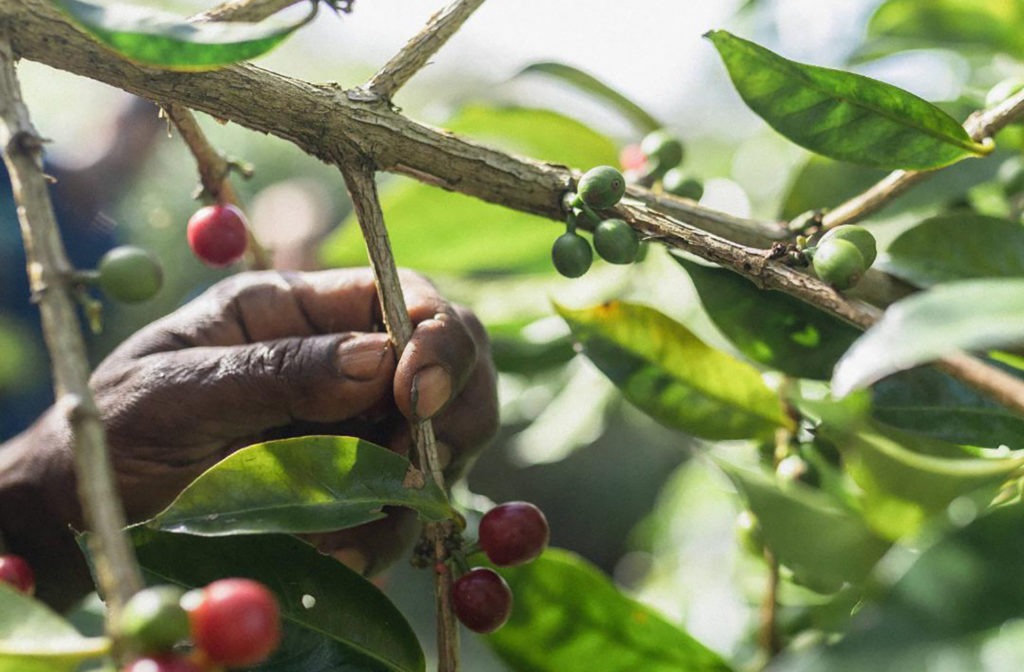
But first, a word about Fairtrade
Around 125 million people worldwide depend on coffee for their livelihoods. Most of these people live in developing countries and poor rural communities, and 95 percent of the world’s coffee farms are smallholders. Many of these farmers are unable to make a reliable living from the coffee they work so hard to produce. With global coffee prices so volatile, farmers are often forced to sell below the cost of production. This perpetuates a cycle of poverty and inequality. And this is where Fairtrade can make a genuine difference.
Why does Fairtrade matter?
Fairtrade certified coffee producer organisations are guaranteed to receive at least the Fairtrade Minimum Price for their coffee. This aims to cover costs of production and act as a safety net when market prices fall. Through producer organisations, farmers also receive an additional Fairtrade Premium to invest in business or community improvements. To find Australian Fairtrade coffee brands, head to fairtradeanz.org
Australian coffees worth supporting
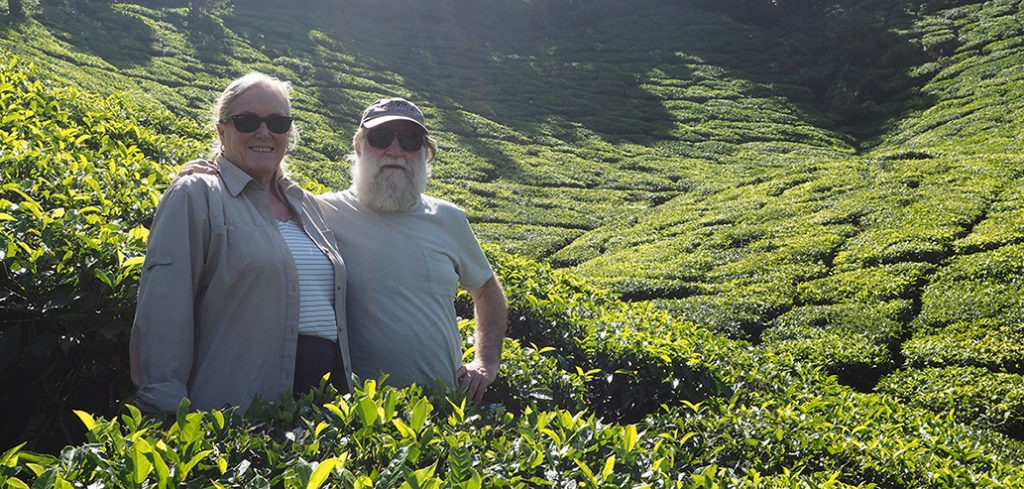
Jasper Coffee
There are so many good things about Jasper Coffee, you could write a book on it. Founded by Merilyn Parker and Wells Trenfield 32 years ago, Jasper Coffee is Fairtrade, Australian Organic and B Corp certified. There’s also a range of “Shadegrown” coffees. Shadegrown means the coffee trees are planted under an indigenous or mixed forest canopy. This provides natural habitat and food for wildlife and birds. These sustainable crops protect biodiversity and help prevent the deforestation that’s widespread in coffee production.
Jasper Coffee also supports a number of important projects around the world. These are helping the growers they source from build more sustainable farms and communities. The business also has a project here in Australia. Jasper supports the Red Dust Heelers, a community engagement program for Aboriginal and other Australians with a disability.
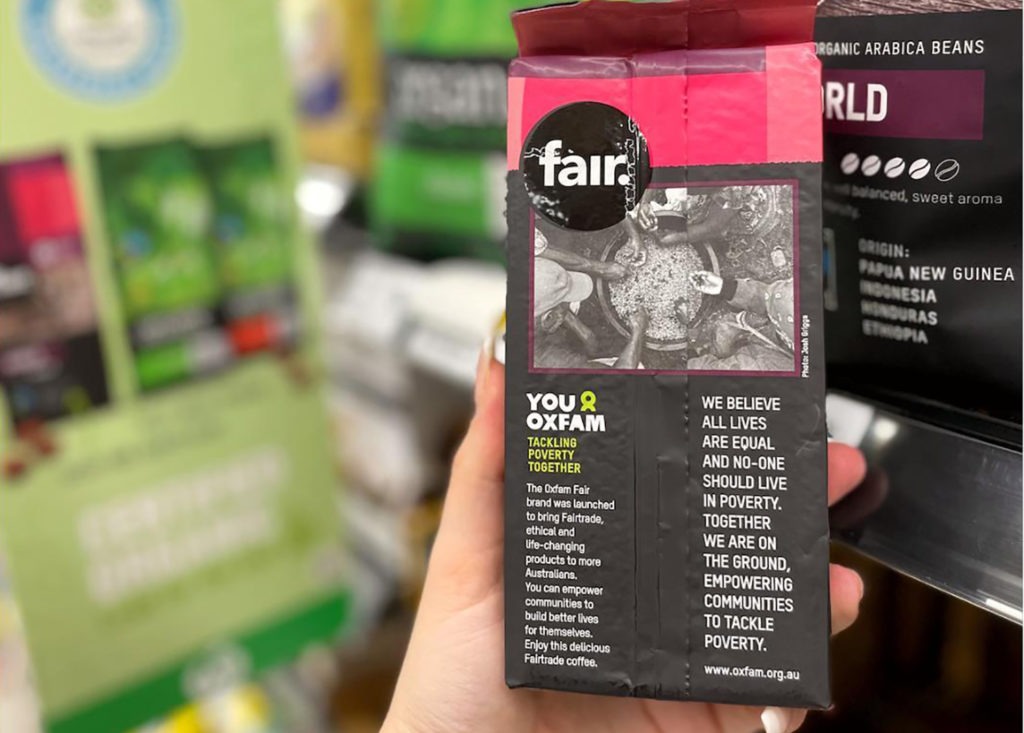
Fair Coffee
Faitrade certified, organic and locally roasted, Oxfam Fair Coffee is sourced using frameworks that ensure farmers are paid a fair and stable price for their raw ingredients. Additional premiums are paid to empower communities to build better lives for themselves. Money raised from the sale of the coffee flows back to Oxfam Australia. This funds programs that tackle poverty around the world. Oxfam produces this coffee in partnership with the Bean Alliance Group Group in Melbourne.
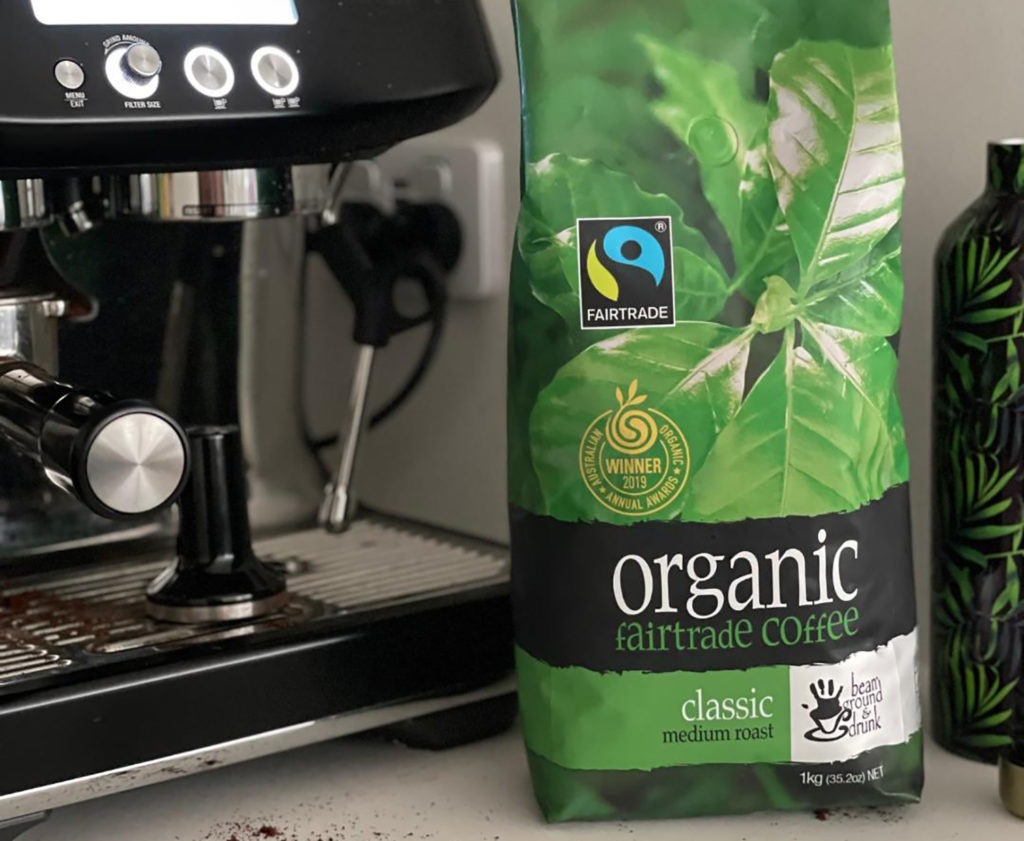
bean ground & drunk
Faitrade certified bean ground & drunk sources all its coffee ethically and was Australia’s first certified organic roasting house. The coffee is double organic certified. This means the beans are certified in both growing and roasting processes. bean ground & drunk was the winner of the Non-Alcoholic Beverage of the Year award at the 2019 Australian Organic Annual Industry Awards. It now offers Fairtrade organic coffee capsules.
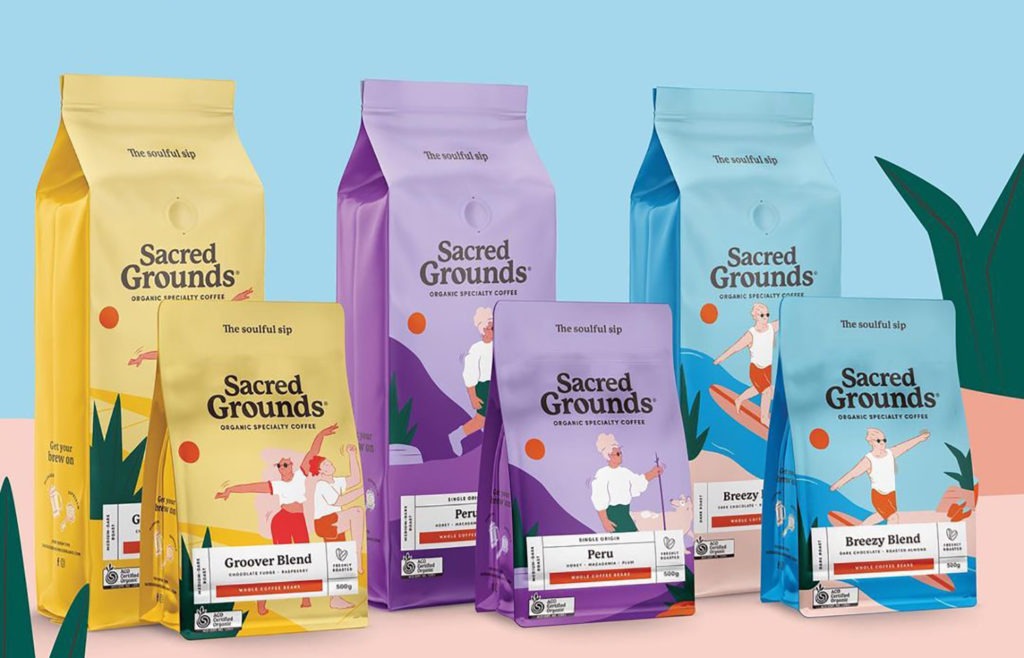
Sacred Grounds
The certified organic and Fairtrade Sydney-based artisan coffee wholesaler sources its beans only from organic farmers and producers. Sacred Grounds follows a low carbon footprint sustainability practice. It also limits its transport mileage where possible to have a smaller impact on the environment. The company uses biodegradable takeaway cups and trays from BioPak. Plus, it donates all hessian coffee bags to a local recycler and recycles all cardboard and paper from the office and warehouse.
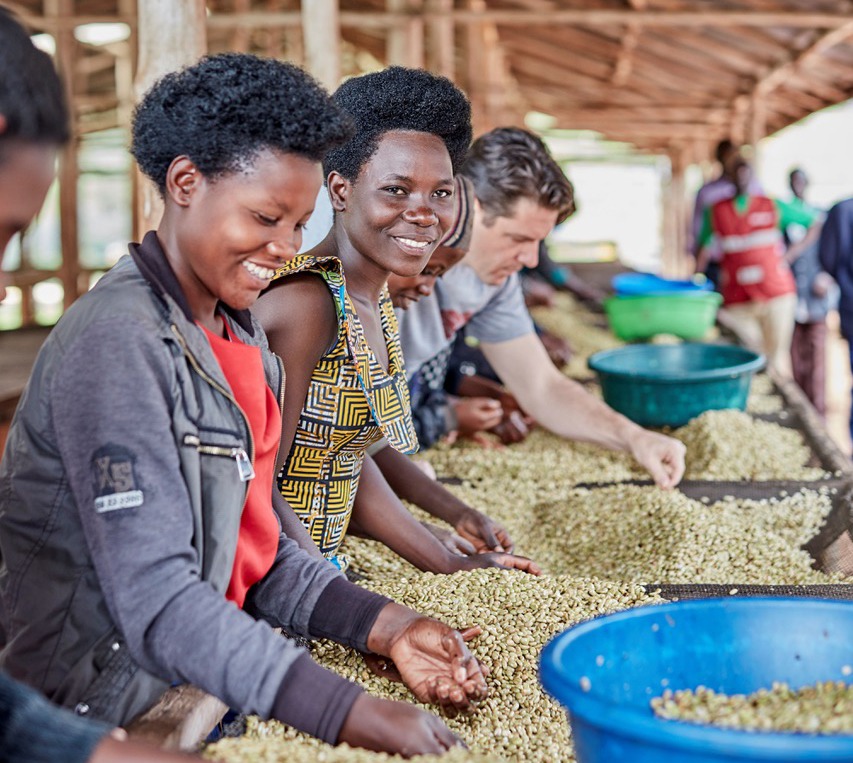
St Remio
St Remio sources certified sustainable coffee and empowers female coffee farmers in Rwanda. This International Coffee Day, St Remio will donate 50 cents from every box of capsules sold via stremiocoffee.com and one dollar from all whole beans and ground coffee sold to support the female farming co-operative of Cocagi in Rwanda. The donations will go towards the purchase of additional land and coffee seedlings and investment in training programs to enhance growers’ output and improve farming techniques that combat climate change. By choosing St Remio, you help to fund development projects and support coffee-growing communities in the African nation through education and infrastructure.
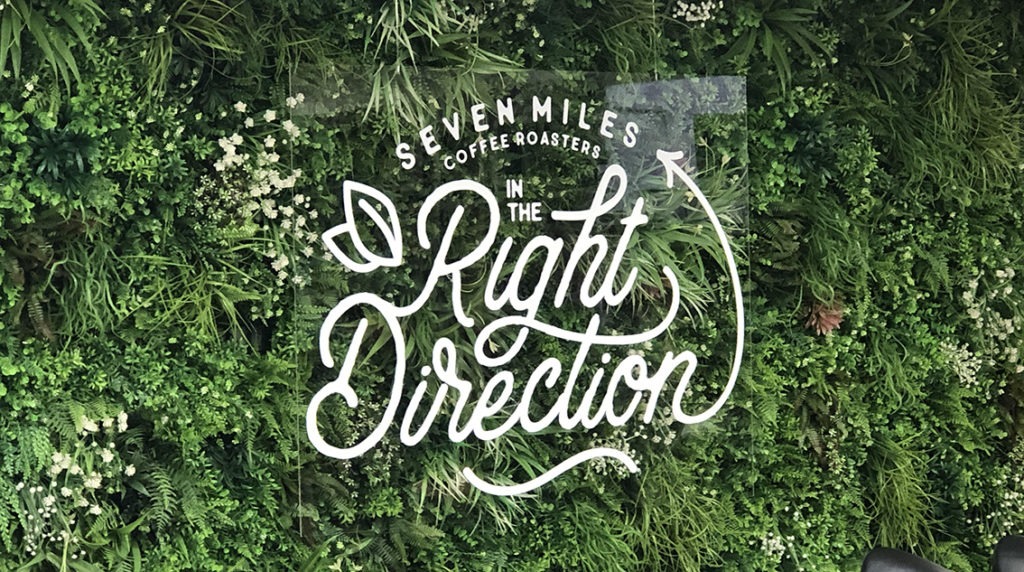
Seven Miles
Based in Manly Vale on Sydney’s Northern Beaches, Seven Miles has launched the Seven Miles in the Right Direction program as part of a broader commitment to sustainability. The program includes a partnership with TerraCycle to introduce Australia’s first recycling program for coffee bags and coffee pods. The business has also partnered with RecycleMe to provide takeaway cups for Seven Miles cafe partners that have a special collection network, with cups then recycled into paper products. So far, Seven Miles has saved 107,392 coffee bags from landfill, 105,840kg of carbon emissions by reducing packaging waste and 207,973kg of carbon emissions by installing solar power at its roastery.
Seven Miles’ Leaf & Berry blend is made from 100% certified Fairtrade and organic coffees. You can find out more about Leaf & Berry as well as Seven Miles’ other brands here.
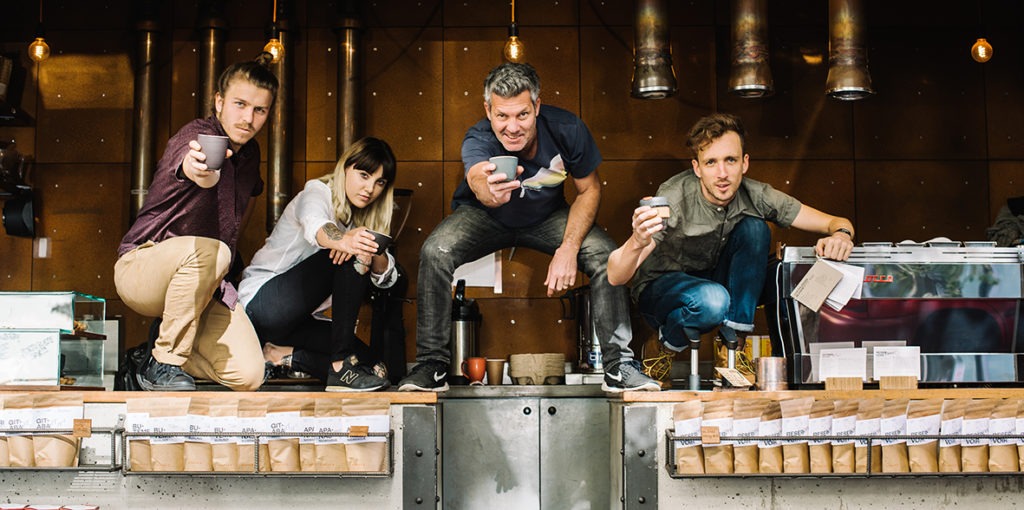
Single O
The Climate Institute is predicting that more than 60 percent of the world’s arabica coffee species could disappear by 2050 due to climate change. So Single O is on a “mission against emissions”. The business is now officially carbon neutral, partnering with Greenfleet to offset its carbon emissions through native reforestation. Single O’s next goal is to achieve net zero status; going beyond offsetting to focus on physically reducing its own emissions.
Single O was the first roaster to introduce climate-resilient coffees to customers. It also encourages the cafes it supplies to shun single-use cups. The business also co-founded “The Juggler” cafe milk tap system. This has saved more than 18 million plastic milk bottles from the waste stream. Single O also became a 1% for the Planet member in 2021.
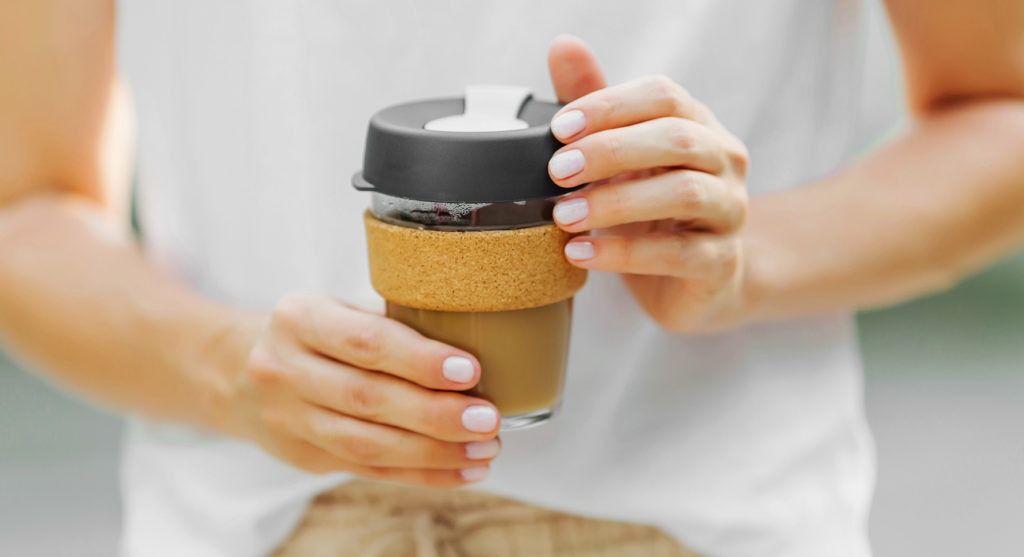
Choose responsible takeaway coffee
Founded in 2013, not-for-profit website Responsible Cafes has a directory of more than 5000 Australian cafes. These offer discounts for BYO cups and engage in other sustainable practices such as composting and using renewable energy. After featuring on the ABC’s War on Waste in 2017, the program’s popularity exploded. Responsible Cafes actively engage with cafes, councils and the community to improve sustainability. To find a Responsible Cafe near you, head to responsiblecafes.org
Making your own coffee at home? Check out these sustainable uses for used coffee grounds. You can also lower that carbon footprint by choosing Australian-grown coffee, like Zentveld’s in Byron Bay. If you’d like to help support our Indigenous communities, check out DHUWA. Australia’s only Indigenous-owned coffee brand, DHUAW is working to build an authentic Indigenous coffee supply chain, from start to finish.


